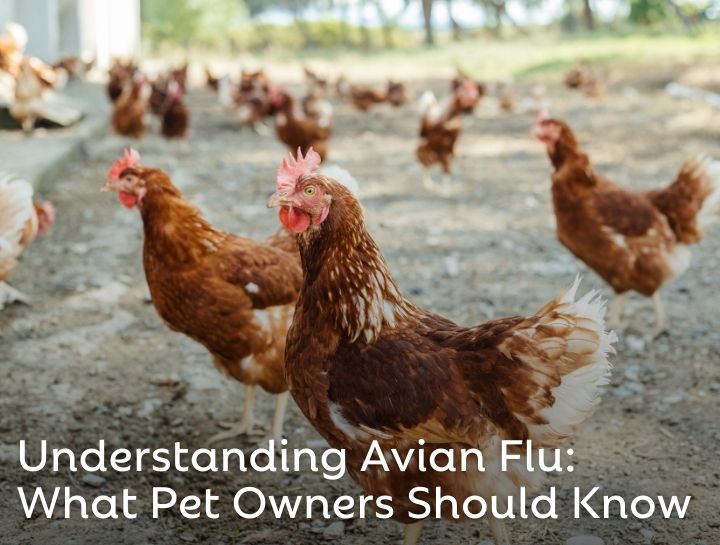Understanding Avian Flu: What Pet Owners Should Know

Are you concerned about the recent reports of avian influenza (bird flu) and its potential impact on your pets? Based on the many calls we've received from concerned pet parents, you're not alone. While avian influenza, caused by the H5N1 virus, primarily affects bird populations, it’s important for cat and dog owners to understand how to protect their pets and communities.
At Shenandoah Veterinary Clinic, we're here to help you stay informed about the risks of bird flu and what steps you can take to keep your pets safe. Below, we've addressed some of the most common questions we’ve received, but if you have specific concerns, please don’t hesitate to call us at (979) 690-7999 to schedule an appointment with your veterinarian.
Is My Pet in Danger of Getting Bird Flu?
Your pet’s risk of avian flu will depend on several factors. First, cats are more vulnerable to the disease than dogs, but both can become infected by consuming raw contaminated meat, unpasteurized milk, or wild birds.
If you own a pet bird or backyard chickens, you should know that birds can contract the disease more easily than other species. Birds can become infected with avian flu directly through contact with sick birds and indirectly through equipment, feathers, manure, and anything that has been in contact with infected birds. It is important to limit any possible interaction between wild and domesticated birds. This includes feeders, tools, boots, and clothing.
How can I Protect my Pet from Bird Flu?
While there is no animal vaccine for H5N1, there are several ways you can protect your pet from avian flu:
- Keep your pets, especially cats, indoors
- Keep your pet away from wild birds, poultry, and cattle
- Prevent your pet from eating dead birds or other animals
- Avoid feeding your pet raw meat or poultry
- Avoid feeding your pet unpasteurized milk
What are the Symptoms of Avian Flu in Pets?
Bird Flu Symptoms in Birds and Backyard Flocks:
- Low energy or appetite
- Purple discoloration or swelling of various body parts
- Reduced egg production, or soft-shelled/misshapen eggs
- Nasal discharge, coughing, or sneezing
- Lack of coordination
- Diarrhea
- Sudden death with no prior signs
Bird Flu Symptoms in Cats and Dogs:
- Fever
- Lethargy
- Low appetite
- Reddened or inflamed eyes
- Discharge from the eyes and nose
- Difficulty breathing
- Neurologic signs, like tremors, seizures, incoordination, or blindness
If you notice one or more of these symptoms in your pet, please call us at (979) 690-7999. Make sure to call before bringing your animal to us so that we can determine whether isolation is necessary to protect our patients.
How is Avian Flu Diagnosed in Dogs and Cats?
Avian flu isn’t the only respiratory disease cats and dogs can contract, which means that diagnostic tests are needed to determine the cause of their symptoms and give your pet the best treatment possible. It is important to know if your pet may have eaten a dead bird or consumed unpasteurized cow’s milk since these increase your pet’s risk of becoming infected.
Together, we can help slow the spread of avian flu and safeguard the health of our pets and communities. If you're concerned that your pet may be showing symptoms or if you have additional questions, please call us at (979) 690-7999 to schedule an appointment with our veterinary team.
